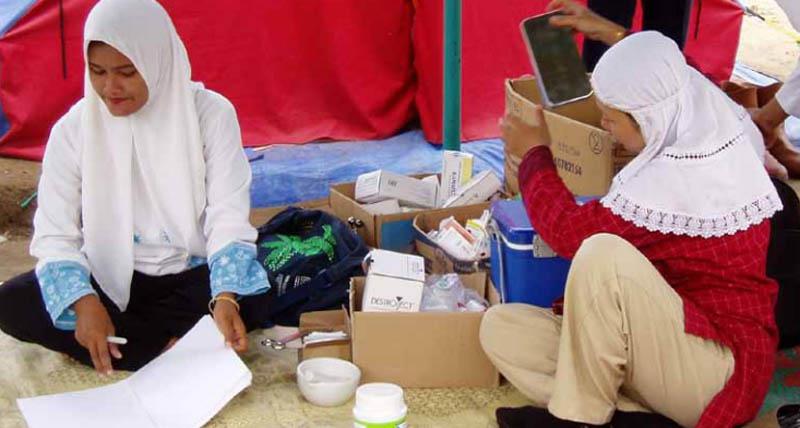Few things prove our interconnectedness more than the environment and climate change. Our actions, both individual and collective, ripple through the ecosystem that we live in. Those very changes come back to us— in ripples, yes, and also in waves and in floods. Intensified by climate change, natural disasters have human causes and tragic human effects. Natural disasters currently account for more than 40 million of the world's displaced people, and the impact appears to be increasing each year. But they don’t have to.
 Women and girls are disproportionately affected by such disasters: women and girls accounted for 80 percent of those who died in the 2004 Indian Ocean tsunami. On World Environment Day (June 5), we should recognize the actions we can take to prevent such disasters and to lessen the humanitarian devastation by those the disasters we cannot stop.
Women and girls are disproportionately affected by such disasters: women and girls accounted for 80 percent of those who died in the 2004 Indian Ocean tsunami. On World Environment Day (June 5), we should recognize the actions we can take to prevent such disasters and to lessen the humanitarian devastation by those the disasters we cannot stop.
Much has been written about humanitarian response following an emergency, and rightly so. But what about helping vulnerable communities prepare for such emergencies? When people—including women and girls—are prepared, they can protect their rights and well-being during the chaos of an emergency.
Women's poor economic and social status before the crisis limits their survival skills and their ability to receive warnings and stay out of harm's way. When specialized programs augment women’s assets—economic, social, personal and other assets—these women will have the resources to take care of themselves and their families.
At the Women's Refugee Commission, we know that preparing for and responding to humanitarian emergencies is many times specialized and localized. Our disaster risk reduction program has been working with communities in the Philippines to help them prepare for natural disasters, which are common in the region. We also conducted research in Haiti, South Sudan and Uganda.
2013 showed us, perhaps more than ever before, the environmental and human cost of natural disasters resulting from climate change. Typhoon Haiyan battered the Philippines; droughts took hold in West Africa, leaving food shortages across the Sahel, as well as in the American West; floods surged in China, Russia and along the U.S.’s Atlantic coastline.
On World Environmental Day, then, we should all certainly think about going greener, about reducing our carbon footprints for a healthier planet. But we can’t stop there. Let’s also play our part in reducing the global trend towards natural disasters and in mitigating crises resulting from environmental displacement.


